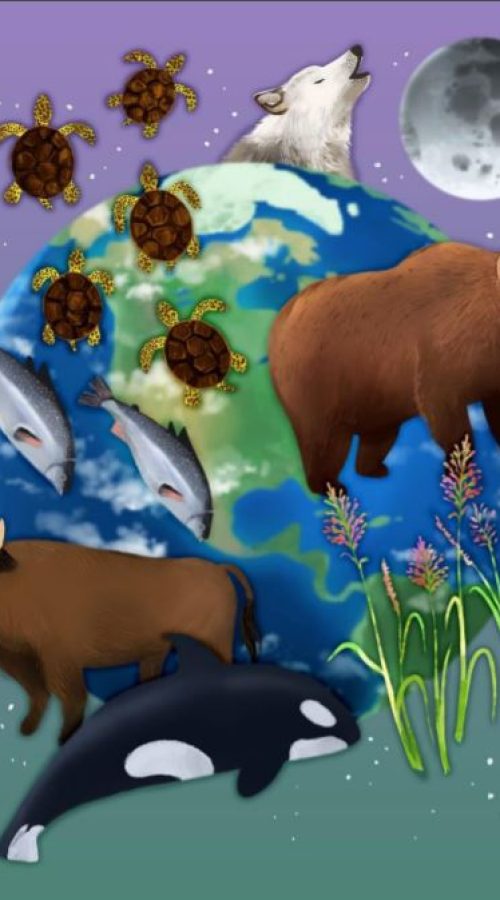K-2 Inquiry Guide
Chapter 5. Indigenous ways of knowing
This chapter consists of three guided inquiries that start with a provocation and culminate with ideas to take action.
Contributor Deborah Miller
Reviewed by Daniel Sylvestre
Video guide for Chapter 5. Indigenous Ways of Knowing. Watch here or in our Youtube Playlist.

This inquiry looks at how Indigenous peoples’ traditional knowledge, skills and practices, passed down from generation to generation, play a vital role in understanding climate action. Indigenous peoples have been, and are leaders, of climate action; their roles in monitoring climate change impacts and the environmental effects on their traditional lands and waters play a critical part in our fight against climate change.
The background information in this chapter explores how Indigenous peoples have lived sustainably with the Land for countless generations. We need to listen carefully to better understand how Traditional knowledge, and its application, contribute to environmental sustainability and planning for the future.
Students learn the importance of observing and living in relationship with the natural world through the wonders of the seasons. Relationship to the seasons and seasonal cycles are foundational to many Indigenous People. Indigenous knowledge passed from generation to generation is continuously shifting because of the changes in the seasons caused by climate change.
Resources:
This inquiry will introduce students to environmental sustainability and present the Indigenous people’s way of life and respect for the land. Students will learn how Indigenous knowledge teaches us about sustainable harvesting and how Mother Earth provides. This knowledge is passed from generation to generation and continues to change as time passes, and new learning occurs.
Resources:
- Lessons from Mother Earth by Elaine McLeod, illustrated by Colleen Wood
This inquiry examines Indigenous people’s way of life and respect for the land. The activities explore the role of Elders and Knowledge Keepers and the importance of caring for Mother Earth.
Resources:
- Create a provocation table indoors or outdoors
Chapter 5 Curricular Connections
Curricular connections | Concepts |
Science | Sustainability Stewardship Ecosystems Interdependence Changes Cycles Climate Conservation Action Innovation Characteristics Protection Living things Energy Environment |
Language | Media form Retelling Restating Communication Critical Literacy |
Social Studies | Location Physical features Community Interactions |
Physical Education and Health | Participation Outdoor education Energy Vitality Relationships Self-awareness Appreciation Motivation |
The Arts ( Visual Arts, Drama, Dance) | Composition Interpretation Symbolism Form Line Colour Space |
Mathematics | Data literacy Quantity Number sense |